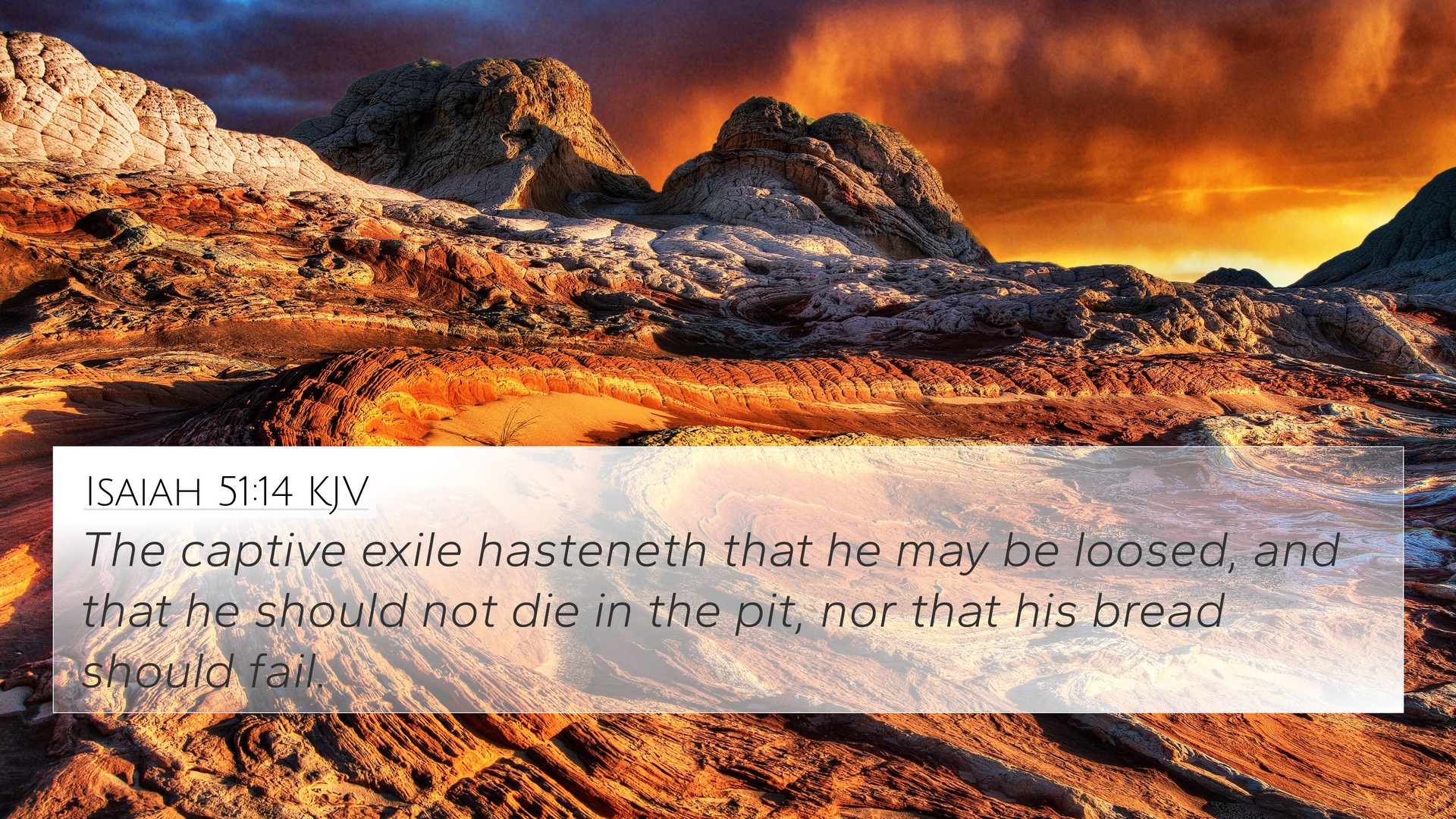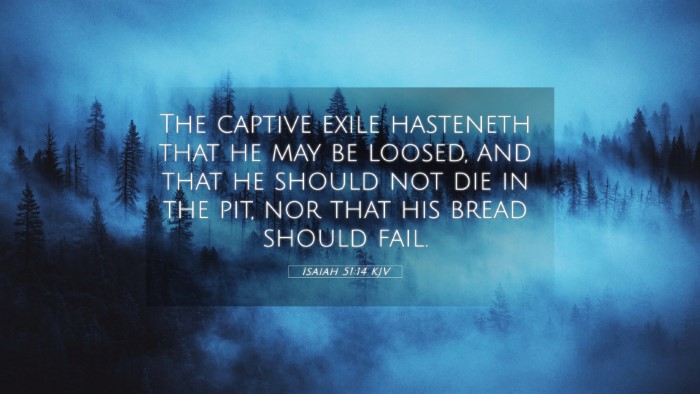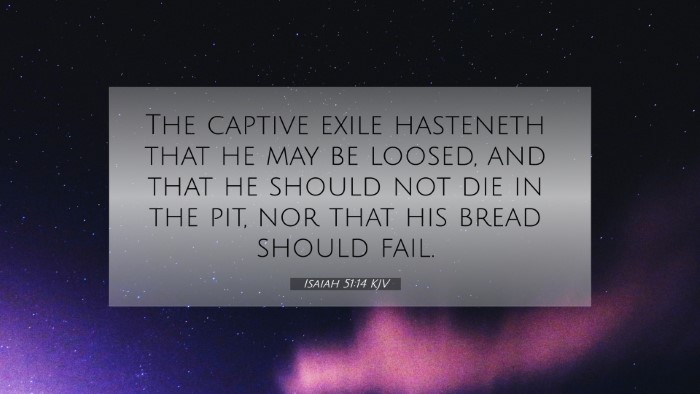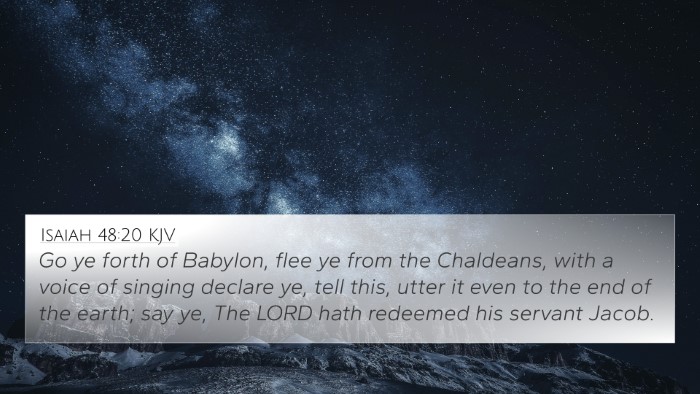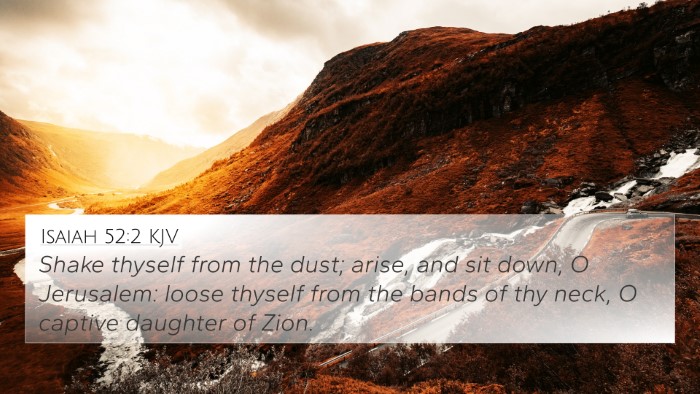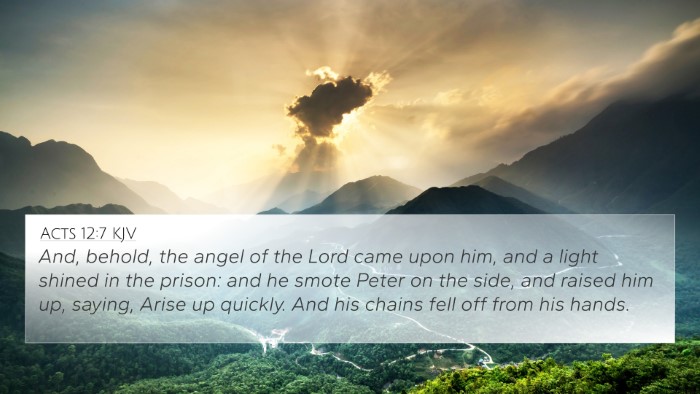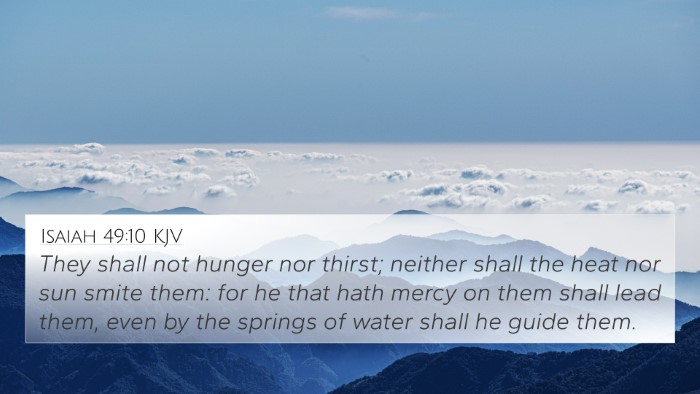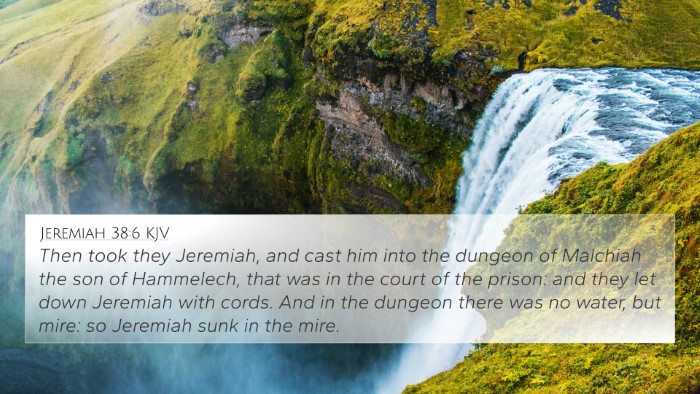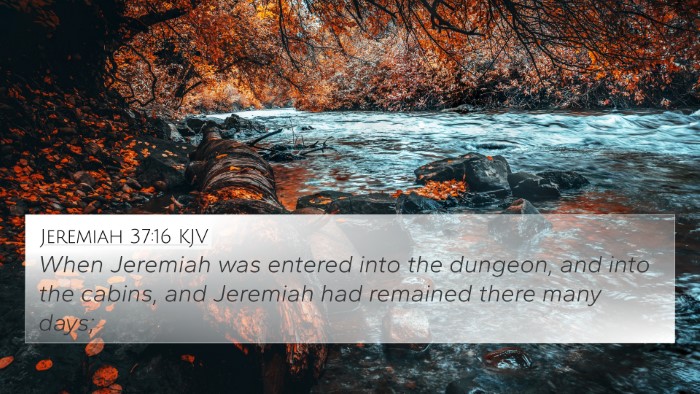Understanding Isaiah 51:14
Isaiah 51:14 states:
"The captive exile hasteneth that he may be loosed, and that he should not die in the pit, nor that his bread should fail."
Summary of Meaning
This verse speaks to the hope and longing of those in captivity. Matthew Henry's commentary highlights that the "captive exile" refers to those who are oppressed and longing for freedom. The urgency in their desire to be loosed from bondage reflects their deep suffering and need for deliverance.
Albert Barnes connects this verse to the larger context of God's promise of salvation and deliverance. The "pit" mentioned symbolizes death and despair that often accompanies captivity. The text emphasizes that God hears the plight of the oppressed and is faithful to provide sustenance and rescue.
Adam Clarke adds that the imagery of bread failing indicates a dire situation, where the basic needs of life are compromised in the midst of captivity. This underscores God's provision even amid trials, as He does not abandon His people to starvation or despair.
Key Themes
- Hope in Deliverance: The verse encapsulates the longing for liberation and the hope that God will intervene on behalf of His people.
- God's Faithfulness: It reaffirms that God will not let His people perish in their plight, symbolizing His eternal care and sustenance.
- Desperation and Urgency: The plea of the exiled captive reflects a deep yearning for physical and spiritual freedom.
- Provision in Times of Need: The mention of bread emphasizes God’s provision amidst desperate circumstances.
Bible Cross-References
Isaiah 51:14 connects to various scriptures, enriching its meaning through inter-Biblical dialogue:
- Psalms 146:7: "Which executeth judgment for the oppressed: which giveth food to the hungry." This relates to God's provision.
- Isaiah 61:1: "The Spirit of the Lord God is upon me; because the Lord hath anointed me to preach good tidings unto the meek." This emphasizes liberation.
- Luke 4:18: Christ’s quotation of Isaiah signifies fulfillment of deliverance through Him.
- John 6:35: "Jesus said unto them, I am the bread of life..." This connects to the theme of sustenance and spiritual nourishment.
- Romans 8:21: "Because the creature itself also shall be delivered from the bondage of corruption..." resonates with themes of freedom.
- Revelation 2:10: Encouragement amidst tribulation reflects the theme of endurance and hope in suffering.
- Matthew 11:28: "Come unto me, all ye that labour and are heavy laden, and I will give you rest." This offers a promise of relief.
Thematic Bible Verse Connections
The verse prompts reflections on overarching themes in Scripture, particularly the relationship between suffering, hope, and divine intervention. This layering of meaning can be further analyzed through various tools for Bible cross-referencing:
- Utilizing a Bible concordance to explore themes of liberation and sustenance.
- Employing a Bible cross-reference guide to trace the connections between related passages.
- Conducting a cross-reference Bible study to deepen understanding of these subjects.
- Comparative Bible verse analysis can reveal how liberation is a recurrent theme across both the Old and New Testament.
Cross-Referencing Biblical Texts
To organize thoughts and teachings derived from Isaiah 51:14, believers can engage in cross-referencing Bible study methods. Understanding similar scriptures will enhance our grasp of how God operates throughout history and impacts the lives of His people.
The techniques for identifying connections include:
- Identifying connections between Old and New Testament: Noting how the theme of deliverance recurs.
- Using a Bible reference resource to compile meaningful themes that link various verses.
- Utilizing comprehensive Bible cross-reference materials to consolidate insights on themes like justice, mercy, and provision.
Conclusion
In conclusion, Isaiah 51:14 stands as a powerful testament to God's heart for His people caught in the struggles of life. By exploring this verse through a lens of cross-referencing, believers can obtain a deeper understanding of the Scriptures, discovering the intricate connections that testify to God's steadfast love and faithfulness across the biblical narrative.
